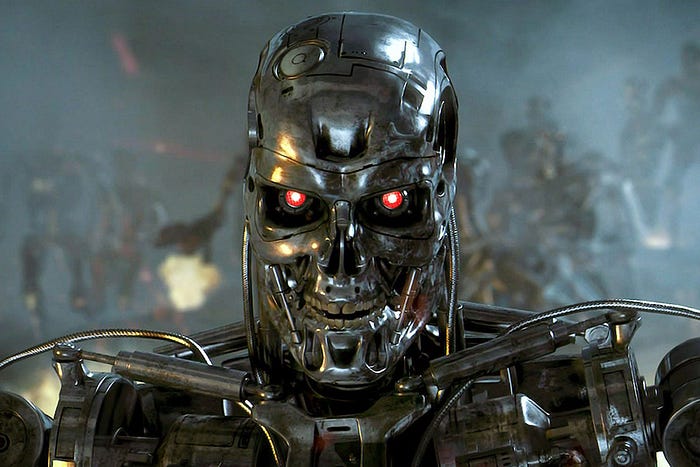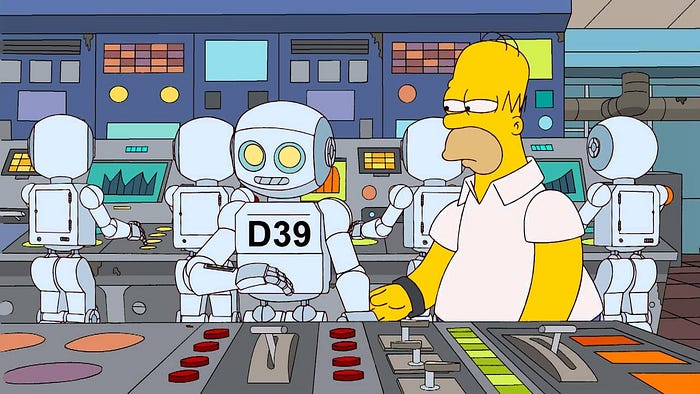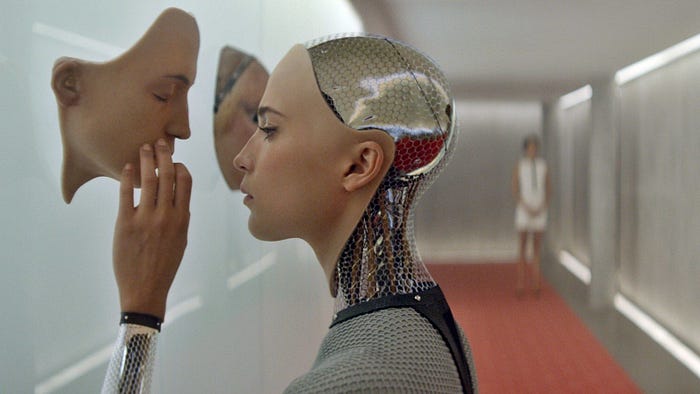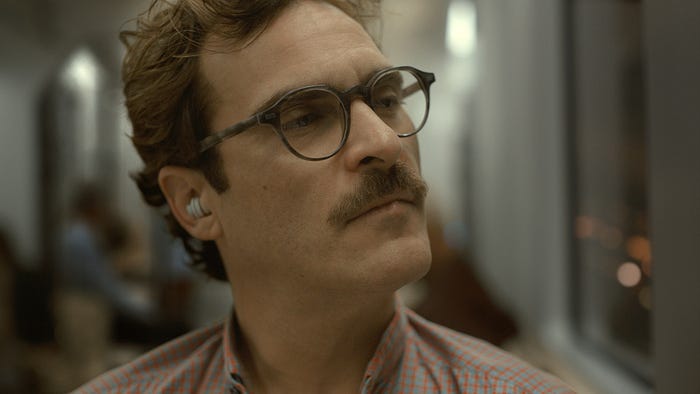From ‘Terminator’ to Today: The Real Threat to Art and Creativity Isn’t AI, It’s Us
Don’t Blame Technology for the State of Art — Unmasking the True Villains in the Culture, Art, Technology, and Modern Ethics

In the 1984 cult classic film Terminator, robots have taken over the distant future 2029, and humanity tries to rebel against a supercomputer, Skynet. This cautionary tale is not about the dangers of technology but about how we, as people, use it.
Skynet was created by a military manufacturer to control hardware. It effectively represents capitalism and profit over humanity. Like many films, such as Scarface, Terminator is a highly misunderstood film that people turn into a tale of the power of the human spirit in the face of adversity.
Robots aren’t conniving for your jobs, art, or writing.

People are greedy and hide behind weak modern ethics in our late capitalist society.
Some use advertising to avoid paying people decently, who force unfair terms and agreements — like music contracts in which artists give up their rights across all dimensions and new media — or who replace human actors with digital reproductions that they own in perpetuity for fractions of a cent per use.
Why?
It comes down to simple supply and demand. We tell creators that to be successful, they must become a brand, give up their integrity, and give away their children/art in the name of progress or a living wage.

Consumers want “free” art. In this digital era, we are conditioned to believe that if you cannot hold something, it has little to no real value. We believe that we do no harm by using or stealing anything that doesn’t have a physical form. These art pieces have transformed our thinking because they are not tangible products, so why, we think, should consumers pay for them?
There are so many problematic behaviors we are quick to blame on technology, thereby creating false villains. Skynet wasn’t the Big Bad; the humans made it to profit.
We cite modern legal ethics to explain why we should maintain our views on how we pay artists, views pushed by CEOs, salespeople, and business leaders who most likely cannot write a novel, paint, or sing. However, these few people hold our livelihoods within their hands and can shift culture, law, and ethics with their immense wealth and power.

Artists do not honestly care about others using their art; part of the art’s point is to be used and consumed. Artists seek to create and share; we need our basic needs filled, i.e., a living wage. In this regard, the idea of modern ownership is a construct created by colonizers and corporations to buy creativity for pennies or licensing fees.
Our culture insists that we all struggle when, in reality, we have enough wealth for everyone. People worldwide do not need to starve, but we create a class system to oppress.
We must support our artists, local fashion designers, artisans, poets, and writers. Do not just support artists with likes or views but with dollars. We must support artists better than we support these repressive megacorporations that care little, if at all.
Don’t talk about the impact of AI if you don’t make or support artists with your hard-earned cash.

About the author, I’m Daniel Saints (DSG2), a dedicated Senior Product Designer. I’ve had the privilege of collaborating with respected names in fashion, experiential design, and product design, including IBM, frog design, Nike, Gap, and The Weather Channel, among others. My journey, while unconventional due to my origins within fine arts studies, it has ignited a deep passion for art that continues to shape my perspective and extends to my role as a creative and enthusiastic collector.
